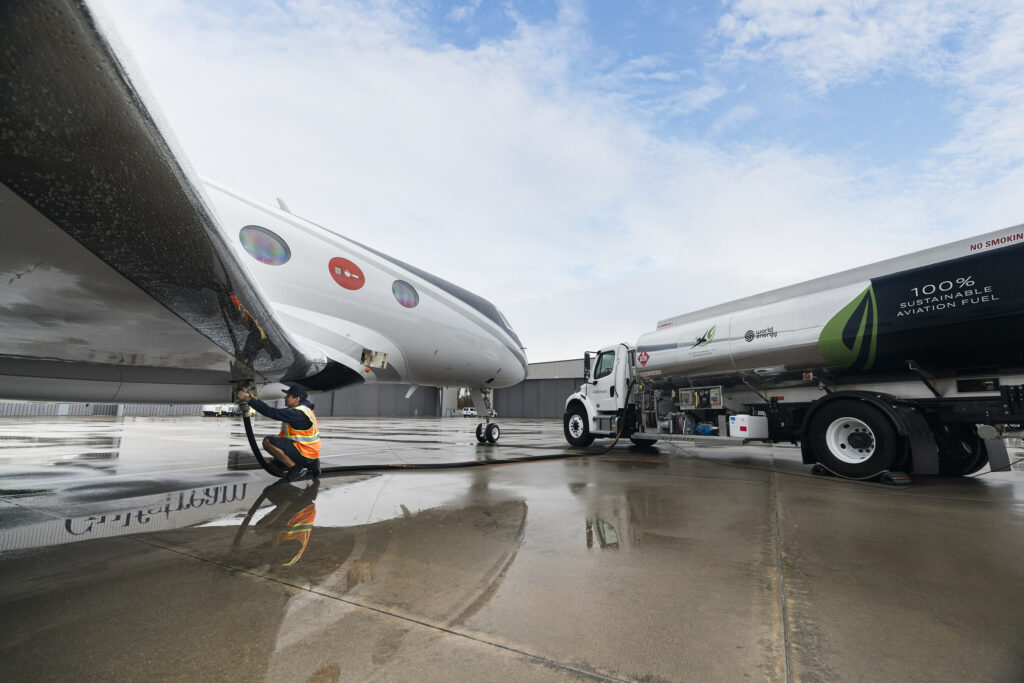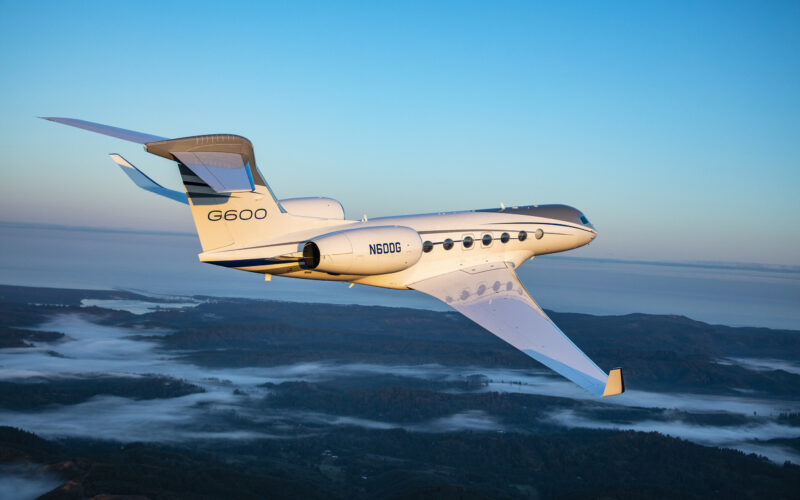Based in Savannah, Georgia, Gulfstream Aerospace has just become the first organization worldwide to successfully operate a transatlantic flight powered solely by sustainable aviation fuel (SAF).
The record-breaking flight took place on November 19, 2023, using a Gulfstream G600 aircraft. The flight departed the company’s headquarters in Savannah and landed six hours, 56 minutes later, at Farnborough Airport (FAB) in southern England.
Powered by Pratt & Whitney PW815GA engines using 100% SAF, Gulfstream states that the flight “showcases the potential for aviation’s future use of renewable fuels, which feature lower carbon, sulfur, and aromatics.”
The data collected from this endurance flight will help Gulfstream, and its key suppliers gauge aircraft compatibility with future low-aromatic renewable fuels, particularly under cold temperatures for extended flight durations. On a broader scale, the experience gained from the pioneering flight will also advance the aerospace industry toward global net-zero future goals.
“Gulfstream is innovating for a sustainable future,” said Mark Burns, President of Gulfstream Aerospace. “One of the keys to reaching business aviation’s long-term decarbonization goals is the broad use of SAF instead of fossil-based jet fuel. The completion of this world-class flight helps to advance business aviation’s overarching sustainability mission and create positive environmental impacts for future generations.”
Burns added: “We want to thank all our partners for their help in making this milestone flight happen and for their ongoing partnership in collaborating with the extended SAF community to champion the aviation industry’s path to 100% SAF usage.”
“Gulfstream continues to break new ground in the sustainable aviation space, and we applaud them for completing this mission as we work to validate the compatibility of our engines with unblended SAF,” said Anthony Rossi, Vice President of Sales and Marketing at Pratt & Whitney Canada.

According to a Gulfstream company statement, the SAF used on the flight was produced by World Energy and delivered by World Fuel Services. The fuel comprised 100% hydro-processed Esters and Fatty Acids (neat HEFA), which has at least 70% lower lifecycle CO2 emissions than fossil-based jet fuel, helping reduce aviation’s impact on climate. Additionally, this fuel has a reduced impact on local air quality and very low sulfur content, reducing non-CO2 environmental impacts.
By completing the first transatlantic flight powered by 100% SAF, Gulfstream Aerospace has taken its place in aviation’s history books. Meanwhile, the achievement is due to be matched by Virgin Atlantic, which plans to operate the world’s first flight by commercial passenger airliner on November 28, 2023.
The British carrier plans to fly one of its Boeing 787 Dreamliner aircraft between London-Heathrow Airport (LHR) and New York-JFK Airport (JFK) on that date, using the flight number VS100 specifically chosen for the groundbreaking flight.

